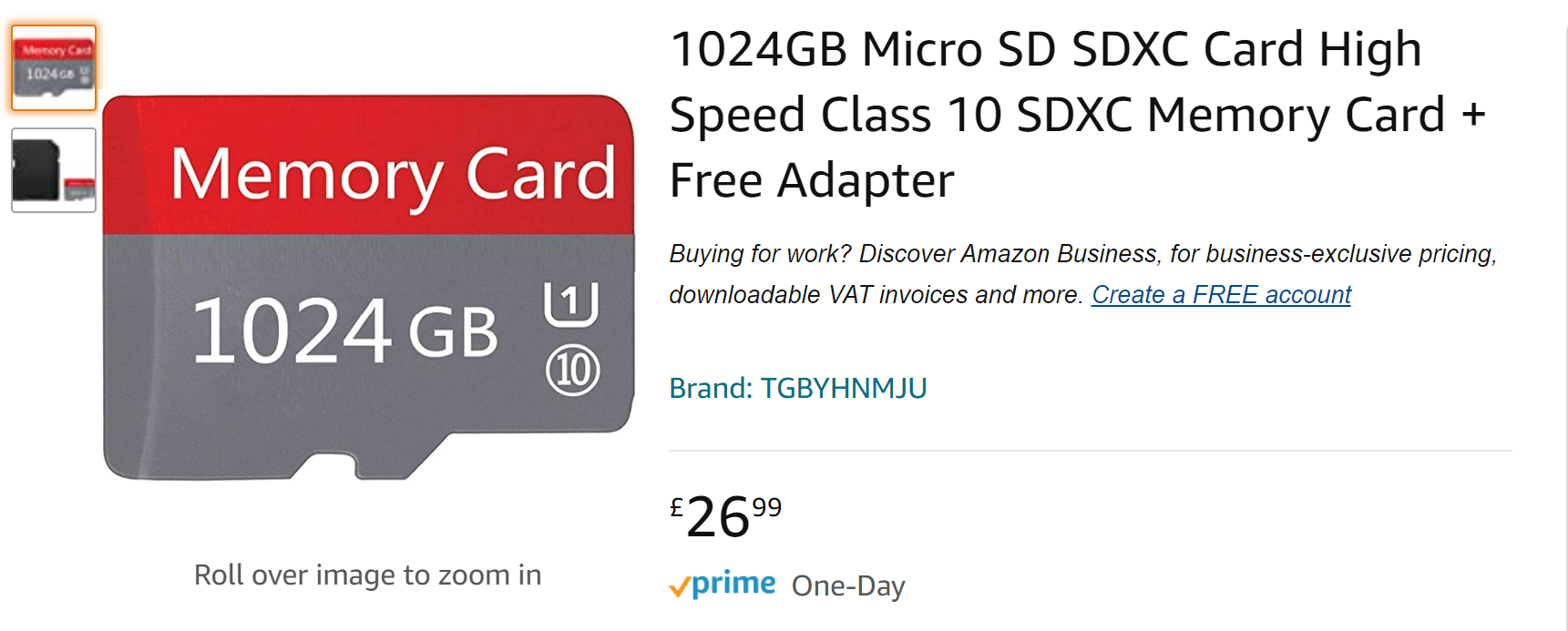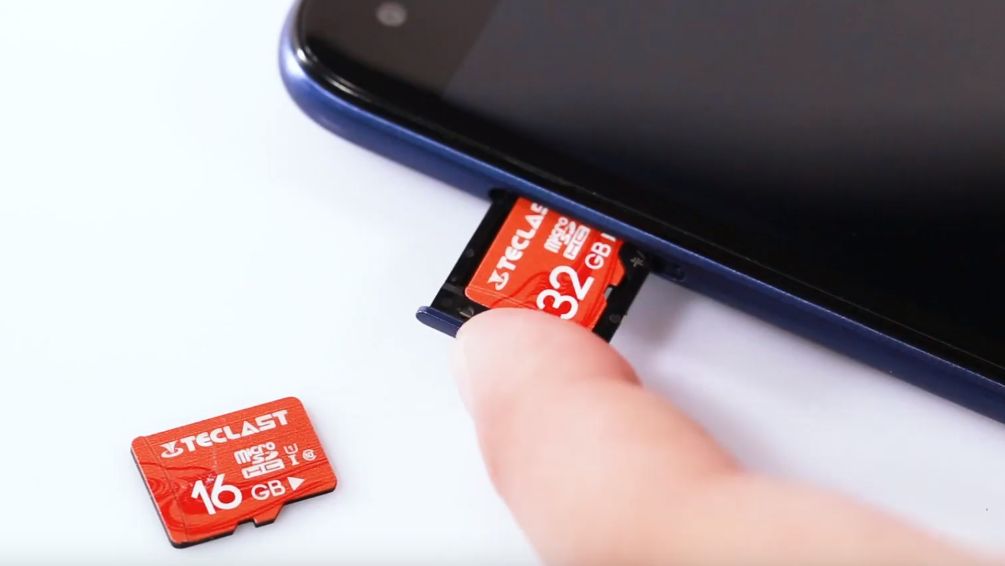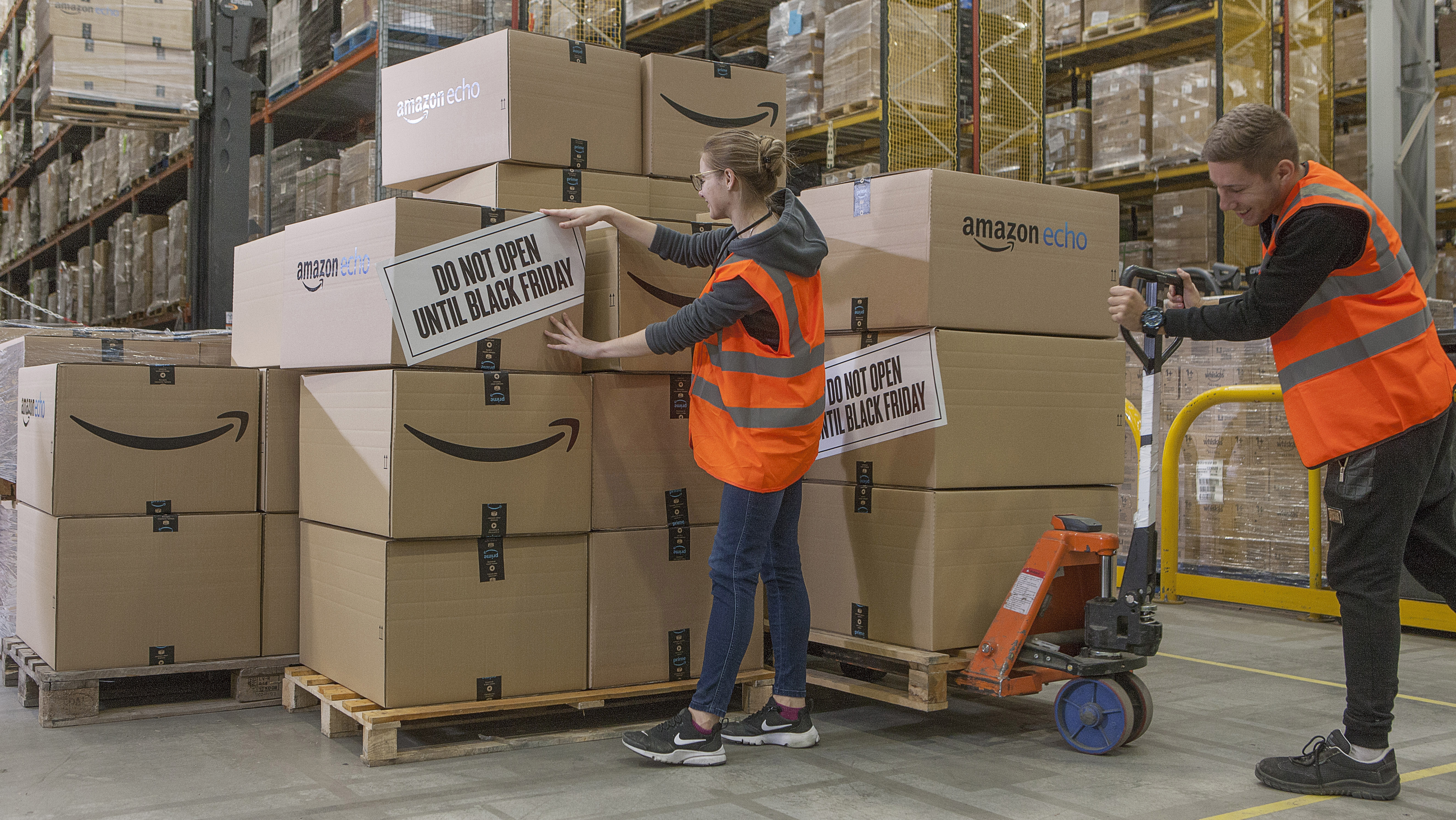Trying to buy a microSD card proved to me that Amazon is becoming a scammers' paradise
Forget Mos Eisley; Amazon is now a hive of scum and villainy

Sign up for breaking news, reviews, opinion, top tech deals, and more.
You are now subscribed
Your newsletter sign-up was successful
This article has been updated to include a response from Amazon.
Last weekend I attempted to buy a microSD card for my Steam Deck from Amazon. Okay, that’s not the most interesting start to a story you’ve probably read, but what should have been a quick and easy search and purchase instead turned into a rather demoralizing experience – and one which made me realize how bad the situation with scam products on Amazon has become.
I’ve bought plenty of things on Amazon before (and usually hate myself for it), but the situation with microSDs really shocked me. When you search for microSD cards, the results mix cards from well-known brands with unbranded cards that have prices (and capacities) that seem too good to be true – and sadly are.
Usually, if you’re buying storage such as microSD or a Solid State Drive (SSD) for your PC, you should invest in a well-known and trustworthy brand. However, as I was looking for a microSD card that would just hold some games, and with the Steam Deck not supporting the fastest microSD speeds, I clicked on a few of the unbranded options first.
The biggest initial red flag with these products is that they're drastically cheaper than other cards. A 128GB SanDisk microSD card would go for around £25 to £50 (between $30 – $65), but these unbranded cards cost a lot less.
Another big warning was the fact that some of these cards were promising 1TB (terabyte) of storage for the same price as a 64GB card. This obviously doesn’t make much sense, even taking into account that you pay extra for a well-known brand.
Also, 1TB microSD cards are rare – only a few manufacturers make them, mainly because it’s difficult to fit so much capacity into a small card. This means that legitimate 1TB microSD cards are very expensive – usually around £160 / $200, which is around 10 times the amount the suspect 1TB cards were going for.
Sign up for breaking news, reviews, opinion, top tech deals, and more.
So, lesson one: If something seems too good to be true, it probably is, so proceed with caution.

Reviews to the rescue
Usually, this kind of price discrepancy would be enough for me to close my wallet and run, but I was intrigued to know how retailers were able to sell these microSDs so cheaply. Rather naively, I assumed that they were offering the capacities that were advertised. After all, there were lots of them – and some were even showing up as 'sponsored' results. Surely Amazon wouldn’t allow such blatant false advertising?
How wrong I was.
One of the good things about buying from Amazon is that buyers are able to leave reviews, and while not all the microSD cards had reviews (another big red flag), many of them did. I was expecting poor reviews because maybe the microSD cards weren’t particularly fast or reliable, which would explain their cheap price.
However, to my horror – and amazement – reviewers reported that these were indeed complete scams, and that the microSD cards they had received didn’t offer the capacities that were advertised. I was shocked, as I hadn’t realized how easy it clearly is to sell fake products.

Lesson two: always read customer reviews. These are great ways to find out if a product is what it's claimed to be. If a product has no reviews, avoid it. Amazon has another, related, issue here, with fake reviews boosting the scores of certain products, but in this case, the legitimate reviews warned me off wasting my money.

How does the scam work?
The reviews didn’t go into detail about the scams, so I did a bit of digging myself. It looks like what’s happening is that real microSD cards are sent out, but with (much) smaller capacities than what are advertised. However, the cards are formatted in a way that makes the device you insert it into think that the card has the capacity the scammer claims.
As some of our readers have pointed out, this is done using custom firmware that makes the microSD card appear to have a larger capacity than it actually has, and this also means that data is deleted on the microSD card if you go over the real capacity. People who have bought the microSD card may not know that anything is amiss until they try to access the files they’ve saved on the card and find that their files are either corrupted or missing completely.
Once victims realize that they've been scammed, they invariably find that they can't contact the seller to ask for a refund.

Amazon needs to fix this
This situation is pretty awful, and it's not a good look for Amazon. You’re supposed to be able to buy in confidence from the site, but the sheer size of the online store seems to have allowed unscrupulous sellers to con unsuspecting buyers.
I was lucky, because I knew what to look out for, but there will be many people who may think these products are legitimate. To make matters worse, some of these fake products are highlighted as 'sponsored' products in the search results, again giving the impression that they're legitimate – and highlighting just how emboldened scammers have become.
Amazon’s well-known issues with false reviews can also make it hard to know what to buy. Since last weekend, I’ve searched again for the phoney microSD cards, and many have disappeared. While this may seem like Amazon is moving against the sellers, new fake microSD card listings have appeared, this time without the many negative reviews that warned me off buying others.
Amazon needs to do something about this, and quickly, as it’s certainly harming its reputation. In the end, I bought a microSD card from a known brand and a different retailer, so I could be sure it was legitimate.
If Amazon doesn’t crack down on these scams, then it could lose even more sales in the future.
We contacted Amazon, which gave us the following statement:
"We work hard every day to protect our sellers and help them grow their business. Bad actors that attempt to abuse our systems make up a tiny fraction of activity on our site.
"We use sophisticated tools, including machine learning, to combat them, and we are making it increasingly difficult for bad actors to hide. We block bad actors before they reach our site and we work with sellers and law enforcement to hold them accountable by withholding funds and pursuing civil and criminal penalties.
"These bad actors show a flagrant disregard for our community, our policies, and in some cases, the law, and do not reflect the flourishing community of honest entrepreneurs that make up the vast majority of our sellers."

Matt is TechRadar's Managing Editor for Core Tech, looking after computing and mobile technology. Having written for a number of publications such as PC Plus, PC Format, T3 and Linux Format, there's no aspect of technology that Matt isn't passionate about, especially computing and PC gaming. He’s personally reviewed and used most of the laptops in our best laptops guide - and since joining TechRadar in 2014, he's reviewed over 250 laptops and computing accessories personally.